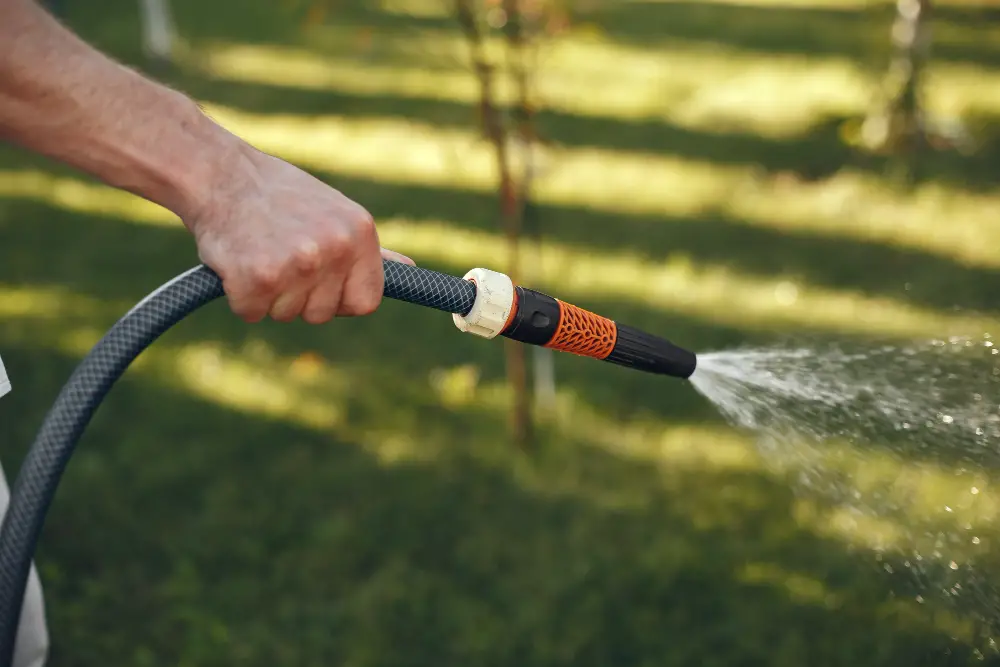The garden is one of the most favorite places of a house. It not only adds beauty to your home but at the same time, it also gives a feeling of calmness.
How would you feel if this place got spoiled because of termites? You will feel frustrated, right?
These frustrations can be removed by understanding what attracts termites to the garden and how we can get rid of them.
What should you do to make your garden termite-free? What should you avoid?
Here, you will find everything you need to protect your garden from termites.
What Attracts Termites to the Garden?

What does the garden have? Soil, trees, plants, and vegetables. Right? So among these what could attract termites? The answer is everything.
All of this can bring termite infestation to your garden. Let’s discuss all this in brief.
Soil
A garden can have a variety of soils such as topsoil, potting soil, clay, peat soil, etc. The intensity of a termite infestation depends upon the type of soil your garden has.
For example, subterranean termites are active beneath the surface of the soil. They nest deep in the soil. Sand is preferred by them as they can easily move through it.
Since topsoil or clay is very compact, subterranean termites find it difficult to move around it. In this case, they construct tunnels and shelter tubes to make their traveling easy.
Another reason why termites attack gardens are the presence of moisture. Moisture eases their survival. It provides an ideal environment for termites.
Wood
Termites’ main source of nutrition is cellulose which can be found in wood. This is the reason why they usually make their shelter around gardens or some moist, dark places where decomposed wood can be found.
Let’s discuss the types of wood preferred by termites.
Subterranean termites prefer springwood. This wood is large, thin-walled, and has soft fibers in it. These termites love wood that is soft and rotting. They feed on springwood that is close to the ground as it will have a higher concentration of moisture in it.
Dampwood termites mainly feed on dead trees, logs, and stumps that are rotting. They are also attracted to soft and moist wood just like subterranean termites.
For drywood termites, moisture is not important, so they mainly feed on hardwood and structural timbers. These types of termites can extract water from the wood they feed on for their survival.
Not all types of wood attract termites. There are many termite-resistant trees present too, such as yellow cedar, cypress, redwood.
Also, pressure-treated wood and those treated with chemicals are avoided by termites.
Plants and Vegetables
Termites’ diet mainly consists of cellulose, fungi, etc but that doesn’t mean they can not harm your plants and vegetables. On getting the ideal conditions, they will feed on plants and vegetables too.
Roots and stems of plants like tomatoes, okra, pepper, and many more attract termites because of the presence of wood in them.
How to Get Rid of Termites?

Chemical pesticides are always there to eliminate termites but it is never a good idea to use them. They will kill termites but at the same time, they will affect the health of plants and vegetables too. So to avoid this situation, here we are listing some safe ways to get rid of termites.
Vinegar
To make a termite killer out of vinegar, you just need to mix it up with lemon juice. Mix half a cup of vinegar and 2 freshly squeezed lemons, and your termite killer is ready. Spray it using a spraying bottle.
The best part about it is that it doesn’t contaminate your vegetables and plants with toxic chemicals. Also, there is no issue with its availability as almost every household keeps vinegar and lemon with them.
Orange Oil
Just like vinegar, orange oil is another termite killer that will do its job without posing any threat to your plants and vegetables.
Orange oil is extracted from orange peels. It dissolves the exoskeleton of termites. Due to this, they lose moisture and ultimately die.
Spray it in the infected areas.
Also, it can be used for prevention purposes too. You just need to spray it regularly to prevent termites from coming back.
Beneficial Nematodes
Nematodes are microscopic, worm-like parasites. They hunt, penetrate and kill termites found in moist, dark environments. First, they seek, then they feed on them until they die.
The best part about this is that it is 100% natural and pesticide-free. Also, they reproduce, which means they will last for a long time.
Diatomaceous Earth
The fossilized remains of diatoms are known as diatomaceous earth. It is also known as D.E and comes in the form of white powder. It is a safe alternative to pesticides and is harmless.
These tiny particles can kill termites within 48 hours. They do so by dehydrating them which ultimately results in their death. Children should be kept away from this product.
Traps
DIY traps are also one of the effective ways to get rid of termites. All you need is one cardboard made up of cellulose. This will be used as a trap. Keep it near the garden. As soon as the termite starts to feed on it, take the cardboard and burn it somewhere.
How to Make a Termite-Free Garden?

The job is not completed after the elimination of termites. You have to make sure that termites don’t attack your garden again. For this, you have to do some things and avoid some to keep termites away from your garden.
- Things to be Done
- Keeping the moisture level down by growing plants that require less water. This makes these plants unattractive for termites.
- Since mulch eases the survival of termites, you can use gravel or stones instead of mulch.
- If possible, try to inspect your garden periodically with the help of professionals.
- Check the concentration of moisture in areas where soil and wood are kept together. It is advised to avoid keeping wood near the soil.
- Non-timber options such as composite trim or metal guardrails should be used around the edges of the garden.
- Things to be Avoided
- Termites can use the root system as a way to your house, so it is better to avoid plants with extensive roots.
- Wood invites termites. So make sure to not use wood for the edging of your garden. And even if you are using it, make sure it is treated with termite repellents.
- There should not be any blockage of air vents around the plants. Air vents help in reducing moisture thus reducing the chance of an infestation.
- Termites can follow the moisture from an in-ground watering system into your house, so avoid using it.
Conclusion
We all love our gardens and can do anything to eliminate termites from them. But it is necessary to think wisely. Treatments should be chosen while keeping the health of plants and vegetables in mind.
Chemical treatments should be avoided at any cost and preference should be given to natural treatments only.
But in case the infestation becomes larger, pest control should be called as there will be a risk of infestation coming to your house through the garden.
